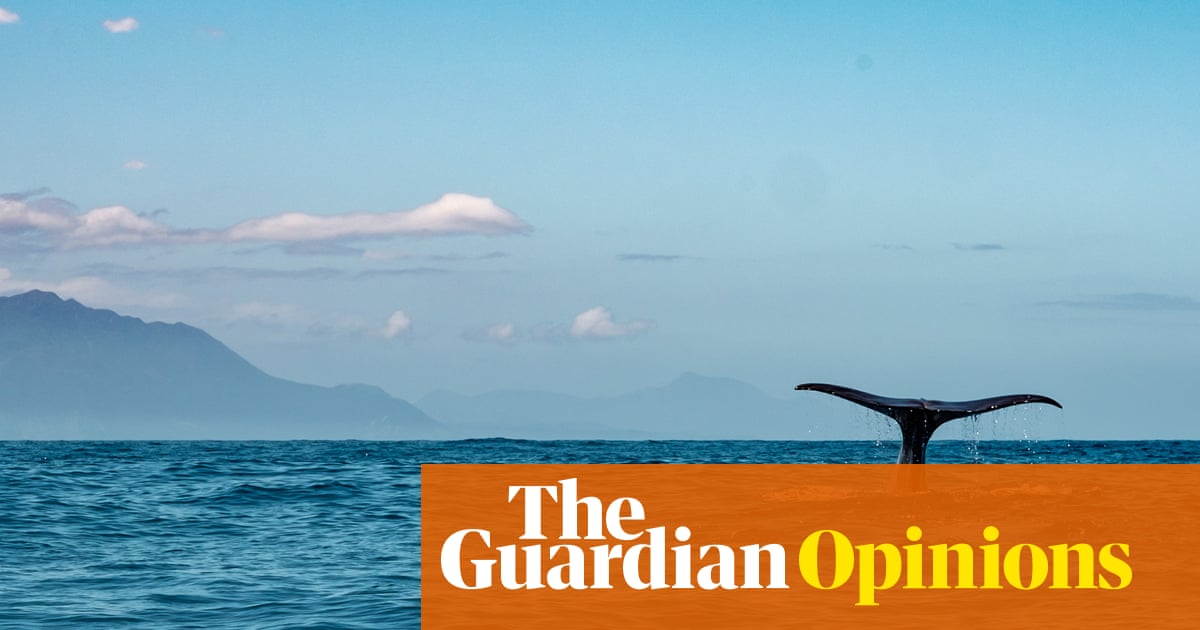It’s a remarkable feat that a small, isolated island nation of just five million people has managed to stake a claim to one of the largest ocean territories in the world.
New Zealand’s exclusive economic zone (EEZ) spans more than 4m square kilometres – an area 15 times the size of our landmass.
But these rights carry responsibilities – in particular, the obligation to manage this vast ocean territory sustainably for future generations.
As leaders gather in Nice for the UN Ocean Conference this week, the spotlight will once again fall on the future of our blue planet – and whether countries are finally willing to “walk the talk” in the final sprint towards protecting 30% of our ocean by 2030.
We stand at a critical juncture and New Zealand must step up. Less than 1% of our country’s oceans are highly protected and thedamaging practice of bottom-trawlingneeds to be restricted.
Most New Zealanders live near the coast and understand that our ocean is ataonga– a treasure – that must be looked after. It’s in our blood. Our waters are visited or inhabited byhalf the world’s whaleand dolphin species, and we have more species of seabird than anywhere else on Earth.
When it established the global system of EEZs in 1982 under the UN convention on the law of the sea (UNCLOS), the UN was clear: the long-term conservation and sustainable use of living resources must be a priority.
In return for that commitment, Aotearoa gained something huge: the full weight and support of the international community.
The reality is that New Zealand has never had – and is unlikely ever to have – the military capacity to enforce our maritime rights unilaterally. We are reliant on the backing of UNCLOS and its compulsory dispute settlement mechanisms, which uphold the rule of law over the rule of might.
In a climate of escalating geopolitical tensions and increasing focus on the Pacific, that becomes even more vital.
As northern hemisphere fish stocks continue to be depleted and fishing fleets focus southwards, we are increasingly going to need the international community to have our back.
But we also need to meet our side of the bargain. Right now, it’s hard to see how that’s the case.
Given ourcommitment to safeguard 30% of the ocean by 2030, more of New Zealand’s seas must be highly protected. Our outdated marine protection legislation is no longer fit for purpose, and proposed reforms have languished over decades.
New Zealand is the only country still bottom-trawling on seamounts in the South Pacific, and twice now the current coalition government has blocked international proposals (which, notably, New Zealand had originally tabled) to restrict this damaging practice, prompting international concern.
While Australia hasbegun laying the groundworkfor a large marine protected area between our two countries in the Lord Howe-South Tasman Sea, New Zealand has been missing in action.
And most significantly,plans to establish a vast Kermadec Rangitāhua Ocean sanctuaryoff the coast of New Zealand’s most northerly islands have been abandoned. Had the sanctuary gone ahead, it would have brought us halfway toward the 30% protection goal and safeguarded one of the few remaining pristine places on Earth.
While there have been legitimate issues to work through to ensure that the creation of the sanctuary upholds Indigenous rights, shelving the idea entirely was the final nail in the coffin for New Zealand’s ocean conservation reputation.
After all, there is a broad understanding internationally that states which benefit the most from UNCLOS – those with large EEZs – should be among the leaders in creating safe havens for marine biodiversity. Many have already done so, including the UK, Australia and Chile.
New Zealand has so far failed to follow suit.
Our marine environmentis in a sustained state of decline, with pollution, rampant overfishing, and the impacts of climate change pushing fragile habitats and species to the brink.
Since 1970, some of our commercial fish stocks have declined significantly, and in places like Auckland’s Hauraki Gulf/Tīkapa Moana, scallop and crayfish fisheries have all but collapsed. Despite being the seabird capital of the world, 90% of our seabirds are nowthreatened or at risk of extinction.
The establishment of UNCLOS has long been hailed as one of the UN’s greatest achievements – and there’s no doubt that New Zealand has heavily benefited from an enormous maritime jurisdiction. But such power over our ocean comes with great responsibility.
It’s time for New Zealand to act, rejoin the global conversation, and start looking after our blue backyard for future generations.
We don’t just owe it to Kiwis – we owe it to the world.
Rt Hon Helen Clark is a former prime minister of New Zealand, and former administrator of the United Nations Development Programme (UNDP).
Dr Kayla Kingdon-Bebb is chief executive of the World Wide Fund for Nature (WWF) New Zealand.
